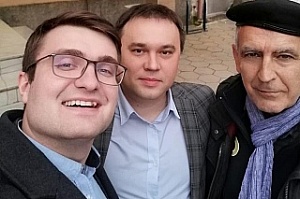Scientists at Tomsk State University and the University of Plovdiv will find out how the myths about vaccination and homeopathy spread in Bulgaria. Using methodology developed at TSU, they will analyze Bulgarian social networks and forums and describe who most often discusses these ideas, where, and what arguments are given. By 2022, they will make a list of recommendations for the healthcare industry that will help prevent the spread of misconceptions. The project was supported by a grant from the National Science Foundation of Bulgaria. The project manager is Ivan Chalakov, professor at the University of Plovdiv and TSU. The TSU participants are staff of the Department of Sociology of the Faculty of Philosophy and the Laboratory of Big Data Sciences and Problems of Society.
- The World Health Organization considered rejection of vaccination one of ten global health threats for 2019. Almost 20 years after the British gastroenterologist Andrew Wakefield announced that vaccines are dangerous and cause autism, anti-vaccine movements have constantly grown. In Western countries, more and more parents refuse to vaccinate their children. As a result, in Europe and the United States we see the biggest measles outbreaks in the past few decades, -said Ivan Chalakov. - Doubts about vaccines are amplified and cultivated on online forums and social networks.
The scientists will analyze the Bulgarian segment of the Internet - social networks, blogs, and forums that discuss vaccination and homeopathy, for example, forums for young parents, medical issues, and others. They will download the body of texts and find out who is talking about these problems, how they talk, and in what situation. This will help to understand why people are against vaccination and homeopathy, and the reasons will be different for different social groups.
- This is the problem of the dissemination of anti-scientific opinions and sentiments in society, that is, ideas that directly contradict the scientific worldview. In this sense, the study of such phenomena is very important, - said Vitaly Kashpur, the head of the TSU Department of Sociology. - From what semantic grounds do people say that they don’t need to be vaccinated, what kinds of arguments lead to this, what types of individuals are most inclined to support these ideas, what they say about it - from a religious point of view, from a scientific or environmental one, or is this one of the manifestations of distrust of pharmaceutical companies and healthcare institutions? Plus we want to correlate the results with regional characteristics. The market for homeopathy is growing rapidly in Bulgaria, and perhaps information forums are just a platform for advertising.
The result of the joint work will be an analysis of the origin, development, and degree of manifestation of the movement for homeopathy and against vaccines in Bulgaria, and recommendations on building a health policy to prevent misconceptions in these areas.

